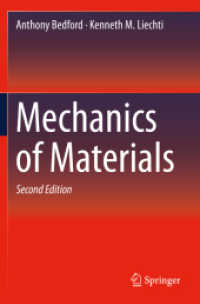基本説明
The goal of Cellomics is to assist both existing users of High Content Screening (HCS), as well as investigators considering the addition of a discovery-driven platform to their R&D activities.
Full Description
There has always been some tension between proponents of hypothesis-driven and discovery-driven research in the broad field of life sciences. Academic research has been primarily focused on hypothesis-driven research. However, the success of the human genome project, a discovery-driven research approach, has opened the door to adding other types of discovery-driven research to a continuum of research approaches. In contrast, drug discovery research in the pharmaceutical industry has embraced discovery-driven research for many years. A good example has been the discovery of active compounds from large chemical libraries, through screening campaigns. The success of the human genome project has also demonstrated the need for both academic researchers and industrial researchers to now understand the functions of genes and gene products. The cell is the basic unit of life and it has been at the cellular level where function can be demonstrated most cost-effectively and rapidly. High content screening (HCS) was developed by Cellomics Inc. in the mid-1990s to address the need for a platform that could be used in the discovery-driven research and development required to understand the functions of genes and gene products at the level of the cell.
Contents
to High Content Screening.- Past, Present, and Future of High Content Screening and the Field of Cellomics.- A Pharmaceutical Company User's Perspective on the Potential of High Content Screening in Drug Discovery.- Linking Microscopy and High Content Screening in Large-Scale Biomedical Research.- Instrumentation, Biological Application Software, and Sample Preparation.- Requirements, Features, and Performance of High Content Screening Platforms.- Characteristics and Value of Directed Algorithms in High Content Screening.- Characteristics and Value of Machine Learning for Imaging in High Content Screening.- Tools for Quantitative and Validated Measurements of Cells.- Automated Cell Plating and Sample Treatments for Fixed Cells in High Content Assays.- Differentiating Primary Human Cells in Rapid-Throughput Discovery Applications.- Use of the CellCard™ System for Analyzing Multiple Cell Types in Parallel.- Reagents.- Reagents to Measure and Manipulate Cell Functions.- Fluorescent Proteins and Engineered Cell Lines.- Optimizing the Integration of Immunoreagents and Fluorescent Probes for Multiplexed High Content Screening Assays.- The HaloTag™.- Protein Labeling With FlAsH and ReAsH.- Exploiting Network Biology to Improve Drug Discovery.- Physiological Indicators of Cell Function.- The Use of siRNA to Validate Immunofluorescence Studies.- Caged Substrates Applied to High Content Screening.- Informatics and Bioinformatics.- Overview of Informatics for High Content Screening.- Large-Scale Data Management for High Content Screening.- An Integrated Biomedical Knowledge Extraction and Analysis Platform.- Visualization of High Content Screening Data.- Pathway Mapping Tools for Analysis of High Content Data.- Assays and Applications of High Content Screening.- SystemsBiology in Cancer Research.- Target Validation in Drug Discovery.- High Content Screening as a Screening Tool in Drug Discovery.- Discovery of Protein Kinase Phosphatase Inhibitors.- High Content Translocation Assays for Pathway Profiling.- In Vitro Cytotoxicity Assessment.- Neurite Outgrowth in Retinal Ganglion Cell Culture.








